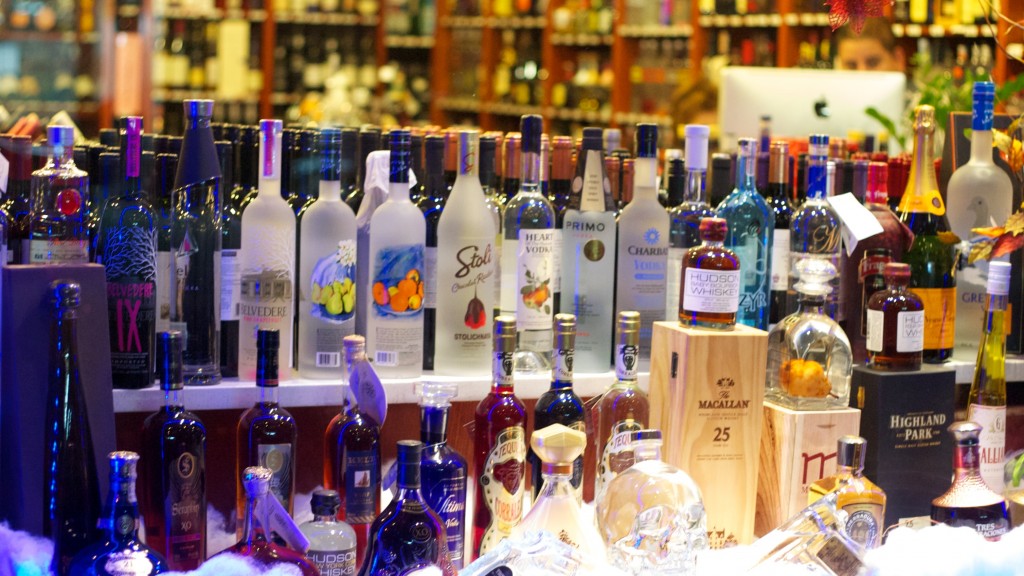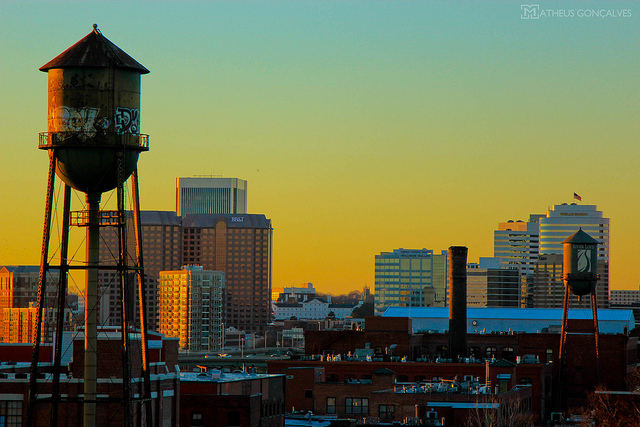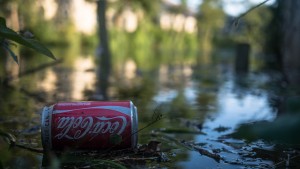Controlling the bottle
Photo by: Billie Grace Ward
Buying your first bottle of liquor, an unspoken accomplishment of adulthood. Turning 21, especially in a state that controls the sale of alcohol means taking a trip to your local ABC store; A certified liquor store, ran by the government to control the sale of alcohol. All funds you use inside one of these stores goes directly to the state, which at first glance means nothing. However, this is a hidden evil as Virginia is notorious for keeping their monopoly on liquor tightly held. Over a course of 76 years Virginia has a made remarkable profit over this monopoly. According to the 2015 annual report the total profit made from alcohol was $400 million about $10 million more since 2014.
Most of these profits come form state taxes that go onto the liquor and manufacturer. Virginia’s monopoly over liquor is a steady source of income as it draws in around $300 to $400 million dollars every year. The money is good for the state as it funds numerous projects but having a monopoly over the whole process restricts more than just where to buy a drink. The prices of alcohol have rose over the years with the most recent raise being in 2014. The steady increases in prices of alcohol and little over watch puts the economy in a bind.
Without enough government over-watch over the board that regulated the sale of alcohol, certain issues start to arise. Starting with the board itself, the member’s require no minimal qualifications, has political favoritism, and acts more of an agency than a regulatory committee. These issue then become
- higher prices for alcohol
- fewer choices and store choice
- poorly regulated substance
Alcohol is an addictive substance and letting the board run freely can not only hurt communities, but the state as a whole. As a voting citizen we are entitled to a fairly governed government. Your voice only is important in solving this already failing system. Even now the board is under the microscope as bill is set to hit the floor this year. The bill would recreate the board, adding qualifications and treating committee more like a business. This in return would mean over-water over the whole process, cheaper prices, and better choices. It would be free to hire employees at will and would make it much easier to hire qualified people to a position. Alcohol can be a serious issue if not looked at, this is why people need to voice their votes, before the bill is shot down.
The city price tag
Photo by: Matheus Gonçalves
Richmond is the bustling heart of Virginia packed with shops, communities, and a ever changing population. I was born in Chesterfield, Virginia just 20 minutes away from the heart of the city. Growing up in the suburbs trips to Richmond were frequent and expected.
Over the years of getting to know Richmond I’ve seen it change. The issue of gentrification has popped up around numerous communities. Gentrification is the increase of property vales, which in return displaces lower-income families. For Richmond it is only in the early stages. Areas that were know to be lower income area are now being re-branded as being a “culture center”.
This can be seen in a multiple of ways. Rocketts Landing is an example of this. Taking the old cigarette factories, in the outskirts of the city around the train yard and turning it into apartments and restaurants. This is good for the area, as buildings are being re-purposed for other means, but this is bad for the communities around it. Gentrification seems like a good thing at first glance. Refurbish the old place and create new areas for cultures and arts. Whats not taken into account is the price tag added along, and the communities that are pushed out.
Richmond is a melting pot of communities put together. Over the years however people have been seeing some being pushed away. Matthew Tatem a longtime friend and resident of Richmond, Virginia has this to say
“An area that would normally be filled with people are now filled with for sale signs. Rent in my area has been steadily increasing, and much like the neighborhood next to me it is hard to keep up with changing tides.”
Tatem, Matthew. personal interview. 10 April, 2016
Tatem shares the same view with anyone living in the city. The fear of increasing rent values are dragging people away from a city with diverse communities. Richmond is made of these diverse communities and with African American populations falling. It is important to keep our city alive and diverse. Reach out the city, and be involved with promoting city policies to lower housing rates and support a better fairer city. Richmond should be a home to all, not just those that can afford it.
A bay in trouble
Photo by: Paul Symes
“Water is the driving force of all nature” These words by Leonardo da Vinci hold true today as water is what drives all of us. Looking especially at the Chesapeake bay, the bay serves as a home and water source to millions of people, either along side the coast or just living near the bay. The Chesapeake bay gives life to the people using it waters and the wildlife calling it home.
However, in recent years the bay has been under attack from pollution. Taking research done by the Chesapeak Bay Foundation the quality of water has dropped significantly. The quality of water is ranked on a scale of 100 and in 2012 it hit 32 and continues to fall today. With the rise of pollution in the bay, issues have been popping up along with the poor water quality there is now dying fish populations and allege dead zones. The Chesapeake bay is becoming a hostile place for both the sea life living there and even the people using the bay. With the failing fish populations and the contaminated water people are at risk of disease from chemicals like mercury, atrazine, simazine, and much more. Chemicals like these are being going into our drinking water, or being ingested with contaminated fish. Research done by Coastal Education and Research foundation painted a much worse picture for the bay. In help with the University of Maryland Center for Environmental Science it showed that with the increase of poultry farms, there has been a increase of nitrogen in the bay. This has happened with run off from the farms. Nitrogen increase can lead to more dead zones of algae. Added with the dying populations, and chemical pollution this can only mean the worse for the bay.
![Rix, Fred. "Dogs Tags for Virtual Sniffing." Illustration. Technology Review 110.4 (July 2007): 16. Academic Search Premier. EBSCO. [Library name], [City], [State abbreviation]. 14 December 2007. http://search.ebscohost.com/login.aspx?direct=true&db=aph&AN=25887648&site=ehost-live.](http://blogs.longwood.edu/clarkeengl/files/2016/02/29985305-300x287.jpg)
Rix, Fred. “Dogs Tags for Virtual Sniffing.” Illustration. Technology Review 110.4 (July 2007): 16. Academic Search Premier. EBSCO. [Library name], [City], [State abbreviation]. 14 December 2007. http://search.ebscohost.com/login.aspx?direct=true&db=aph&AN=25887648&site=ehost-live.
This is a serious issue for families and a serious issue for the environment. the contamination Organization like the Chesapeake Bay Foundation are pushing for a better future for the bay however. They are setting the stage for improvement and how to start dealing with the problem areas “The Clean Water Blueprint is in place and working, but there are danger signs ahead. The states must pick up the pace of reducing pollution, especially from farms and urban areas.” said CBF President William C. Baker. Making the best for the bay they need help in the end from the people living there or nearby. People like you is the cure alone, taking action and reducing pollution runoff as well as volunteering to help clean the bay will help prevent any more pollution in the future. Companies and government may be slow to act, but bringing the issue to the forefront of current issues with help speed up restoration. Restoring the bay to it’s original state is going to take work but with help and support, it will come.



